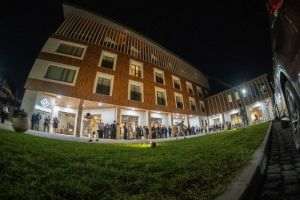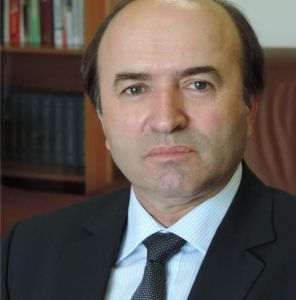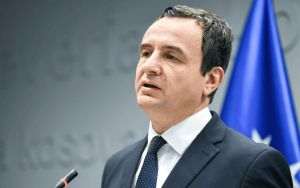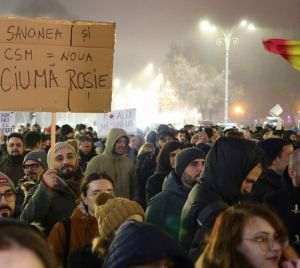From the article "Will we return to normal or not?" published in BURSA about a week ago, where we pointed out that the pandemic is behaving like a montagne russe, with the number of infections in Romania being up continuously, yesterday a sudden drop was announced.
While in Romania, the authorities were alleging last week that the Covid-19 pandemic was not a joke, but quite the opposite, that the spread risk has increased after the loosening of the restrictions, in Germany there have been leaks that the new coronavirus would be a false alarm.
A document drawn up by several German medical experts which is 93 pages long denounces the measures passed by the German authorities against the new coronavirus.
The most controversial passages of the document in question speak of the fact that the danger represented by COVID 19 has been overestimated, and the virus does not exceed the level considered normal as a threat to public health, proving that the measures passed to prevent its spread have been exaggerated. People who die of COVID-19 are those that, statistically speaking, would have died this year because of other medical issues, the German document states.
In Romania, the reports of the last week concerning the new cases of infections with Sars- Cov 2 have once again sparked discussions about data manipulation by the authorities, especially since ten days ago, nothing predicted the high of 320 cases recorded last Sunday.
Yesterday, a sudden drop of almost 50% followed, with 166 new cases. According to the Strategic Communication Group, we have over 564000 processed tests, but we don't know exactly how many people have been tested, because there are people that have been tested several times, due to their profession. For instance, if we take the 16 soccer teams in the 1 st League, which have on average over 25 players, plus their technical staff, officials and other employees, and which have conducted over five tests per person, it would follow that out of the 564000 tests, a few thousands come from football. Add to that the tests performed on professional athletes that have begun training again, the repeated tests of medical staff, of public sector employees, government members, etc.
Regarding this aspect, epidemiologist Adrian Marinescu, from the Matei Balş National Institute, told us that it would have been logical to differentiate between tests and to report all new tests, not the people who retake the test. That is, only the first tests of those people should have been reported.
This simple calculation would show us that, in reality, about 100,000 have been tested so far - or maybe a maximum of 150,000 people out of a total population of almost 19 million citizens.
In view of these figures, the situation presented by the authorities is far from hope inducing, as long as we do not know the exact number of people tested. And this gives rise to speculation, especially in terms of the appearance of some press materials, including the report prepared by German specialists, which shows that there are exaggerations about the new pandemic.
Speaking about the situation in Romania, doctor Alexandru Rafila, Romania's representative at the World Health Organization, claims that yesterday's reporting - 166 new cases - needs to be analyzed in terms of the fact that fewer tests are conducted on Sundays.
"It is obvious that we are on an upward trend, and this can be seen if we take into account the average over the last three days. In my opinion, this trend has been caused by the increase in social and economic activities and the total relaxation of citizens, who have received contradictory messages and considered that the initial decline in the number of cases meant that the pandemic was over. It is obvious that the community spread of the new coronavirus continues. It is clear that depending on how we all behave, we will have a more or less quiet summer," Dr. Alexandru Rafila told BURSA.
Speaking about the report drawn up by the German experts which has appeared in the media last week, Alexandru Rafila said that it is a document that has been exploited by the mass-media and which doesn't represent an official point of view of the German Ministry of Healthcare.
• The easing schedule continues, even though the situation is uncertain
Even if he agrees with the fact that we must continue to have protection measures, Dr. Adrian Marinescu, epidemiologist at the Matei Balş National Institute, claims that, in addition to the figures presented in recent days, several factors should be known.
"Sunday was a much too great increase, but I think it also depends on the reporting, because some cases are reported with delays. We should calculate an average over at least three days. It is always important to report the number of tests done on the same day, because we need to know the positivity index. There were days when 5,000 tests were done, and last week the average was between 12,000 and 15,000 tests performed daily. When you come up with loosening measures it is clear that you should expect an increase of no more than 30% in the number of cases compared to the week before. In my opinion, Sunday's report is not be real, but that doesn't mean the authorities are manipulating the data, as that would not be beneficial to them politically. Extending the state of alert is not an advantage for politicians", Adrian Marinescu told us.
He believes that it would be better to average the last seven days at the beginning of each week, in order to know the exact situation we are in: "However, it is clear that the current situation is not what we wanted, because it was logical for the decrease to continue and be higher. It is not normal to have fewer cases in Germany than in Romania. Easing measures are being taken because the number of cases is decreasing, and when we've seen that they've been rising for three days, maybe they should be approached differently.
Unfortunately, there exists a loosening schedule, approved on May 15, that is being followed, which I agree with, provided that the situation regarding the number of cases is within the established parameters. At this point, it is clear that people have complied less with restrictions the restrictions immediately after lifting of the state of emergency, and this was seen after the first easing periods of May 15 th and June 1 st ".
The specialist also told us that we should be worried, "because the situation is still uncertain" and thinks that in the next two weeks it would not be expected to continue to have 300 new cases a day. Especially since, at one point, the scrapping of protective masks starting with August 1, was discussed, if the number of cases continued to decline, which, under the current conditions, no longer seems certain.
Dr. Adrian Marinescu also told us: "However, people would not support the reintroduction of restrictions, and a restoration of the state of emergency is inconceivable, because it would generate a wave of protests from civil society. They think we must have a downward curve and do not accept any increase in the number of cases. Because the population was pressured during the state of emergency, now citizens tend to ignore everything, even recommendations. Therefore, we should treat every easing measure very seriously. I believe that, after the new easing that started on June 15, this week is very important. Only in the beginning of next week will we be able to draw conclusions about the evolution of the pandemic in our country, and I believe that we will have a downward curve."
Regarding the report presented by the German specialists, Adrian Marinescu claims that they are referring to the fact that the media was hyperbolic in its approach of the new coronavirus, which he says is a fact.
"From the very beginning the mass-media has presented this virus as being deadly, even though scientifically it can't be said to be so. It is true that there is a number of deaths, especially in certain age ranges, but we can't talk about a generally deadly virus. I think that the mass-media knew things from a scientific point of view, but it chose to present things worse than they actually are, even if we're not dealing with a mere flu virus", says doctor Adrian Marinescu.
Regarding a possible second wave of the pandemic, Adrian Marinescu states that it can occur at any time and will be declared only if we reach 400 or 500 new cases daily cases of Sars- Cov infection.
• PSD: Conditions on the state of alert Interim PSD president Marcel Ciolacu yesterday announced that social-democrats have decided not to vote the extension of the state of alert by more than 15 days. When asked repeatedly whether the PSD will accept the extension of the state of alert, Ciolacu said that he could not announce a decision because there is no formal proposal from the government.
Marcel Ciolacu said: "Because we have no risk analysis available, no government proposal to extend the state of alert, no one knows what will happen in a few hours when the state of alert expires. We certainly know that people can go into gambling venues, we know that people are not allowed to enter churches, we do not know if the chronically ill can go to hospitals, others are closed - such as the Colentina Hospital. I assume that the government will step in to clarify things for Romanians, we are waiting to see the government's proposal".
The PSD leader said that the Social Democratic parliamentarians will vote in favor of everything related to the health of the citizens and that they will not agree with direct procurement during the state of alert. Ciolacu said that the PSD wants an intermediate state, which must not exceed 15 days.
When asked if the PSD will amend the Government's ruling to extend the state of alert, in order to introduce stipulations concerning theaters, restaurants or churches, Ciolacu said that there will be amendments concerning religious locations.
In connection with the extension of the state of alert, we mention that USR yesterday (June 15 th ) asked the Government to urgently send to the Parliament the necessary decision, accompanied by detailed analyzes to support the proposed measures.
"We need to have all the details, first of all to prevent the PSD and its allies from engaging in this politicking and irresponsible discourse over the extension of the state of alert. We need a real discussion, based on numbers. The thing is that, after a time where things seemed to be going well, we have several days in a row with a rather significant increase in the number of new cases. We have also seen an increase in the number of tests. I do no want to feed the stories and speculations about the number of cases and the increase in the number of tests in the last few days. I hope that the government will continue the massive testing in the coming period as well. It is a very serious matter of public health", USR deputy Ionuţ Moşteanu said in a press conference in the Parliament.
He said that the USR will make a decision on the vote on the extension of the state of alert after receiving the documents from the Government.


























































